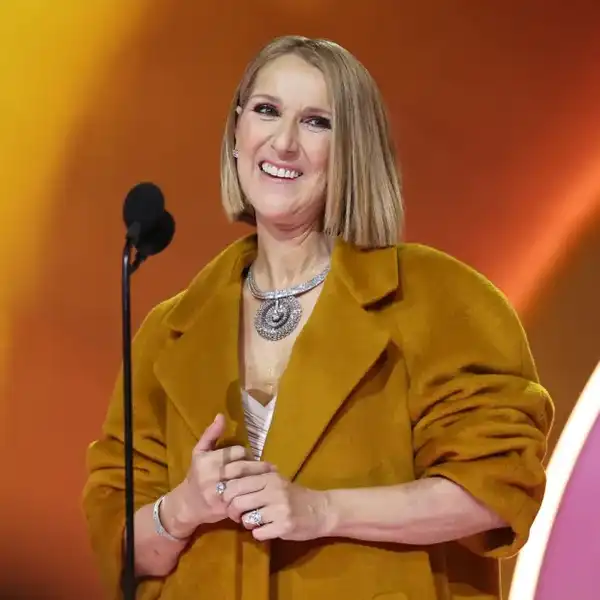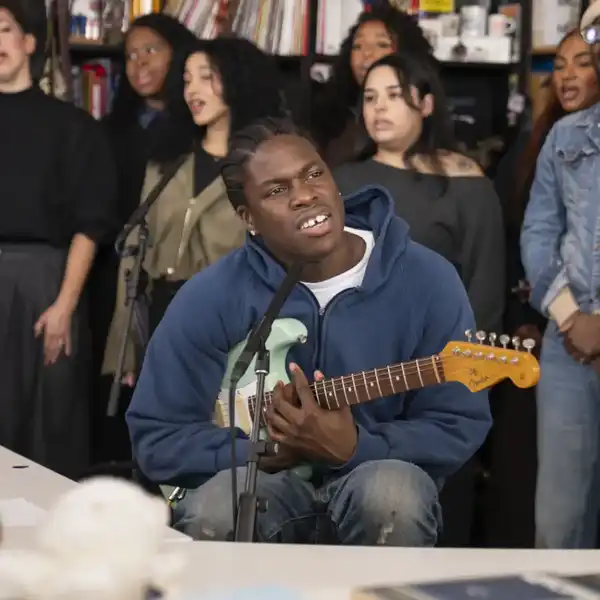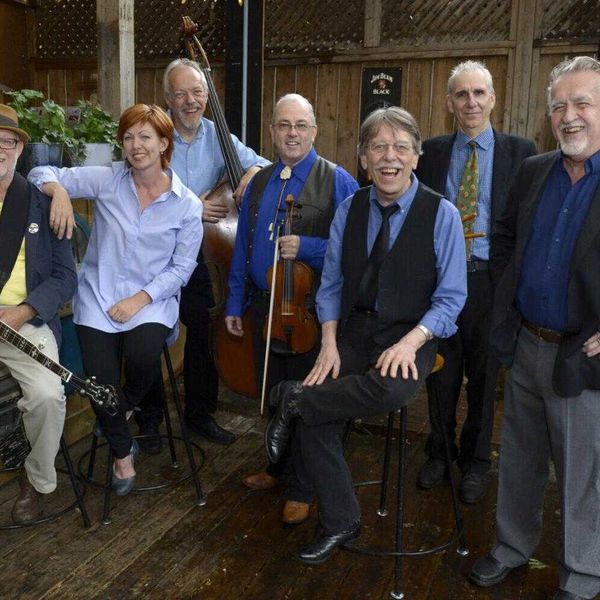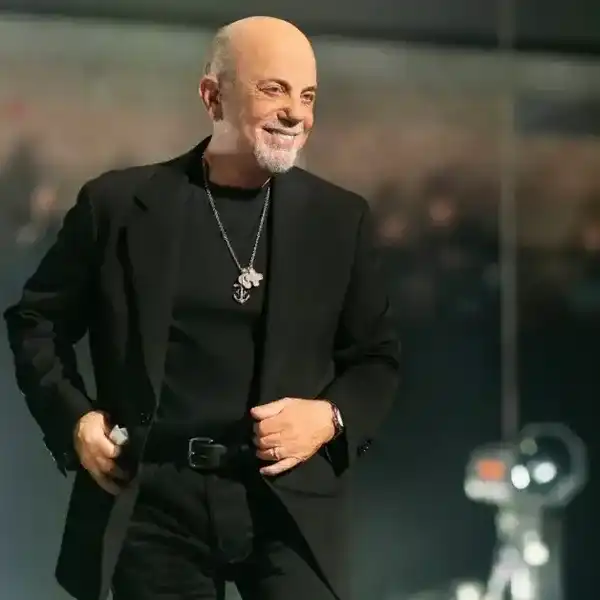Obituaries: Legendary Rock Producer Shel Talmy, English Lyricist Pete Sinfield
This week we also acknowledge the passing of famed jazz drummer Roy Haynes, influential jazz saxophonist Lou Donaldson and Grammy-winning songwriter Austin Roberts.
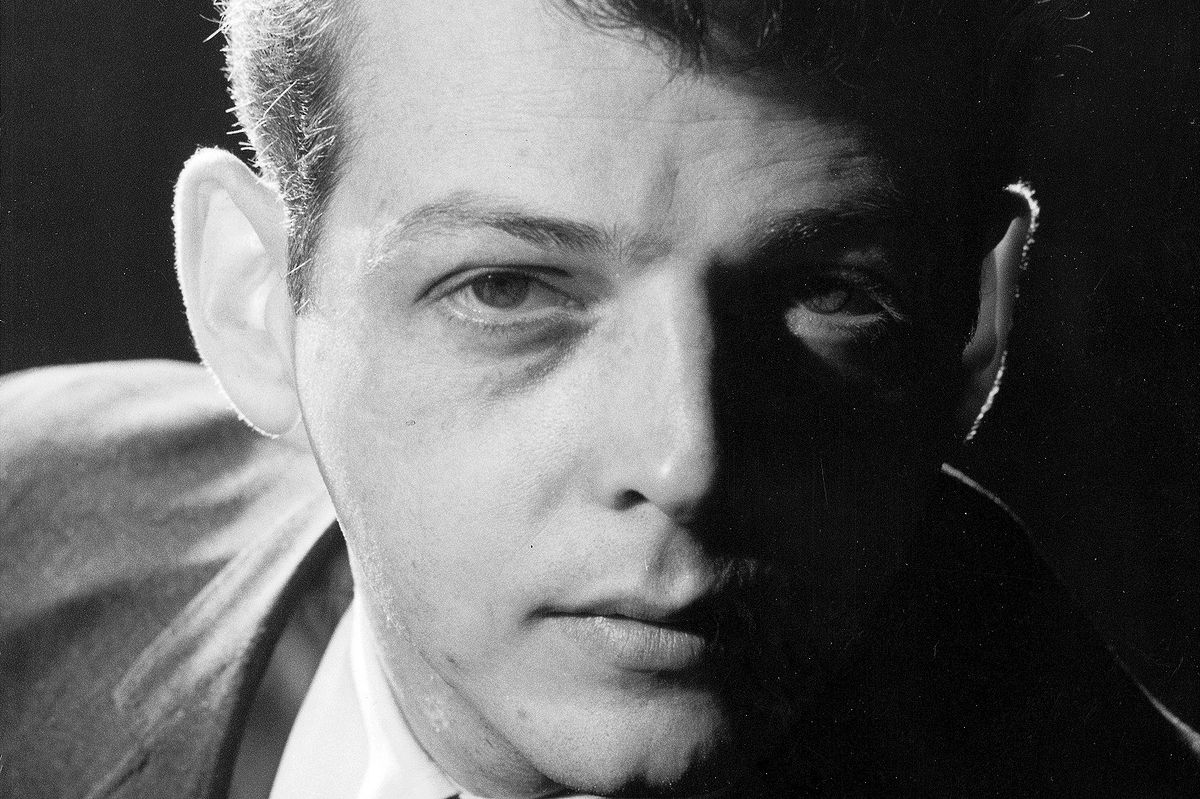
Shel Talmy
Shel (Sheldon) Talmy, an American record producer who played a crucial role in the '60s British invasion, died on Nov. 13, due to complications from a stroke. He was 87.
In its obituary, Billboard terms Talmy "a prolific and influential producer who oversaw some of the most iconic songs in rock history."
His long list of credits include seminal songs by The Kinks (including “You Really Got Me,” “All Day and All of the Night,” “Tired of Waiting” and “Waterloo Sunset”), The Who (“My Generation,” “I Can’t Explain,” “The Kids Are Alright”), and Australian expats The Easybeats (“Friday on My Mind”).
The Chicago-born Talmy started his career as a television recording engineer at Los Angeles’ Conway Studios. “Three or four days later I was an engineer,” he told Mix magazine in 1990. “I had always liked technical things, and I just took to it.”
After working with artists such as Gary Paxton, The Castells and legendary band The Wrecking Crew, Talmy moved to the U.K. in the early 1960s. He arrived in London on holiday in 1962 and took what was intended as a temporary summer job with Decca Records, yet ended up resident in the U.K. for the next two decades, having a huge impact on the scene there.
As well as those hits for The Who and the Kinks, Talmy produced “I Pity the Fool,” recorded by the Manish Boys, which featured an 18-year-old singer names David Jones – later known as David Bowie. Other credits include singles and albums for Manfred Mann (“Just Like a Woman”), Roy Harper, Pentangle, Small Faces, Amen Corner (“If Paradise Is Half as Nice”), Chad and Jeremy (“Summer Song”), the Creation, Lee Hazlewood, and, in the late '70s, punk veterans The Damned.
Variety notes that "Talmy’s work with the Kinks and the Who in particular introduced a muscle and heft to contemporary rock music that was unprecedented for the time — the Kinks’ Dave Davies used an amplifier with holes poked in its speaker on 'You Really Got Me,' giving the guitar its gloriously distorted sound — and which has reverberated across musical generations via genres such as garage rock, punk and heavy metal."
Some other major figures in British rock also had their careers boosted by Talmy. In 1963, he employed legendary producer Glyn Johns as an engineer, and worked with Jimmy Page as a session engineer before Page joined The Yardbirds in 1966 and co-founded Led Zeppelin in 1968.
In a statement, Talmy’s archivist and historian Alec Palao claimed he “was truly a one-off. Even the briefest survey of the most essential pop and rock recordings of the 1960s would need to include something Shel produced, and that in itself is an incredibly meaningful legacy."
Talmy's Facebook posts about his career were highly popular amongst musicians and fans. His Facebook page posted a statement that notes "Shel thought the world of you, his FB followers and supporters, and to that end, some time ago he prepared the following statement that he would like shared now - preferably with 'You Really Got Me,' 'My Generation,' 'Friday On My Mind' or your choice of favourite ST production cranked in the background)."
It reads, in part: "Hi to all, and many thanks to all of you who have been reading my rock stories for all this time, it has been greatly appreciated! Please note, that if you're reading this now, this is my final vignette, as I am no longer residing on this plane of existence, and have 'moved on' to wherever that may be.
"I'd like to think that I'm thoroughly enjoying my new 'residence,' and that the countless rumors that there is a big working 'studio in the sky' are true, and that we are, dare I say, making heavenly music! I am also hoping that I am currently engaged in renewing relationships with a ton of friends and acquaintances, many of which go back for decades.
"I've had a good run, and I am delighted it lasted as long as it did. I'm also delighted that I am told I have a legacy that will last even longer. I look forward to meeting some of you in the future who are reading this, but LOL, don't hurry to get here, I'm not going anywhere!"
Lou Donaldson, an influential American jazz saxophonist, died on Nov. 9, aged 98.
In its obituary, The New York Times calls him "an alto saxophonist who became part of the bedrock of the jazz scene and whose soulful, blues-steeped presence in the music endured undiminished for three-quarters of a century. He was a mainstay of the Blue Note record label at the height of its influence and power,."
"Donaldson recorded constantly as both a leader and a sideman beginning in 1952. He was a leading voice of the more elemental style that came to be called 'hard bop,' an evolution out of the bebop revolution wrought by his inspiration on the alto sax, Charlie Parker."
Born in North Carolina, Donaldson studied the clarinet as a teenager – all his siblings were musicians – and played in a marching band at college. In 1945 he was drafted into the US navy, where he took up the alto saxophone and joined a navy band that also featured the celebrated swing altoist Willie Smith.
After the war, he moved to New York City, and drew inspiration from the work of Charlie Parker. In its obituary, The Guardian notes that Donaldson "heard the bluesily expressive depths in the new idiom better than many of Parker’s young imitators – his tone was incisive and fierce, his phrasing as emphatic and dramatic as a sermon, while he also had a sophisticated grasp of the method’s harmonic complexities."
"Donaldson was one of Charlie Parker’s most distinctive alto saxophone disciples when he first surfaced in the 1950s. The post-Parker alto saxophonists Cannonball Adderley and Donaldson rarely departed from the blues. Their work did much to inspire the '60s soul-jazz movement – bebop with a preacher’s emphatic cry – and a jazz development that was critical to the evolution of late 20th-century fusion and jazz-funk.
The Guardian adds that "Alongside his immense saxophone eloquence, Donaldson possessed a highly entertaining strangled-parrot blues voice, and at gigs in his later years would regularly deliver his vocal party piece, 'Whisky Drinkin’ Woman.' He would then express his gratitude to audiences with the words 'glad y’all appreciate classical singing.'
"Donaldson had his biggest hit with the soul-jazz anthem "Alligator Boogaloo" in 1967. He probably stopped changing as a creative jazz artist around this time, but it never mattered that he stayed the same. His show had a rootsy bonhomie that kept it engagingly and unerringly on the road."
The New York Times reports that "Donaldson’s years at Blue Note yielded an extraordinarily diverse catalog of recordings, including seminal collaborations with the organist Jimmy Smith, beginning in 1957. Their work together helped pioneer a new jazz genre with unexpected crossover popularity: the organ-sax combo. In 1967, Mr. Donaldson added a rising guitar virtuoso named George Benson to the mix for a Blue Note session under Mr. Donaldson’s own name, alongside the great Hammond B3 organ player Lonnie Smith.
"That session generated the LP Alligator Boogaloo, which became a crossover hit: Its funky title track cracked the Billboard Hot 100, a rarity for a jazz record label in the 1960s. Mr. Donaldson’s sales throughout this period were exceptional for a jazz musician."
Beginning in the 1990s, his recordings became a favourite source of samples for the hip-hop industry. WRTI reports that "hip-hop DJ and producer Pete Rock started making frequent use of samples from Donaldson’s music, incorporating the horns from his 1970 track 'Pot Belly' into a 1992 remix of House of Pain’s 'Jump Around.'
"Even more popular was Donaldson’s 1967 cover of Bobbie Gentry’s 'Ode to Billie Joe.' Idris Muhammad’s drum beat from the tune is one of the most sampled elements in all of hip-hop, undergirding notable tracks by A Tribe Called Quest, Lauryn Hill, Kanye West, Eminem and others."
The National Endowment for the Arts named Donaldson a Jazz Master in 2012.
Roy Haynes, a pioneering jazz drummer who went on to become one of the most recorded percussionists in music history, died on Nov. 12, at age 99.
Born in Boston, Haynes began his musical career in the early 1940s, becoming a full-time professional drummer in 1945. Billboard reports that "throughout the decade, he worked with the likes of saxophonist Lester Young and performed as part of Charlie Parker’s quintet from 1949 to 1952. Haynes was also offered a role in Duke Ellington’s band in 1952, ultimately turning it down due to a desire of being in smaller bands which allowed more room for musical expression.
"Haynes’ recorded output is an impressive one, boasting appearances as a sideman for names as revered and acclaimed as Miles Davis, Sarah Vaughan, Sonny Rollins, Thelonious Monk, Art Blakey, Ray Charles, Stan Getz, and countless others before the advent of the 1960s. Alongside this work as a sideman, his output as a bandleader was equally prolific, with his first record – Busman’s Holiday – arriving in 1954."
Haynes was a highly decorated musician and earned huge peer respect. He received his first Grammy Award nomination in 1988 in the Best Jazz Instrumental Performance, Group for his work with Chick Corea. Over the next 19 years, he would take home two awards from his eight nominations.
In 2012, he was given a Lifetime Achievement Award from the Recording Academy, with another Lifetime Achievement Award coming from the Jazz Foundation of America in 2019.
Other awards included the the Chevalier de l’Ordre des Arts et des Lettres from the French government in 1996, and honorary doctorates from both the Berklee College of Music and the New England Conservatory. In 2004, DownBeat magazine inducted him into their Hall of Fame, having being named in their readers and critics polls on 14 occasions.
Even in his '80s and '90s, Haynes maintained a touring and recording schedule. For his 85th birthday, he played a stretch of shows at the Blue Note jazz club in Manhattan, the dates spiced with special guests like piano great Chick Corea, who had engaged the drummer for his acclaimed 1968 album Now He Sings, Now He Sobs.
Read DownBeat's obituary here.
Austin Roberts (born George Austin Robertson), a Grammy-winning Nashville singer/songwriter, died on Nov. 1, at age 79.
Larry Delaney of Cancountry informs that "He is best remembered for his 1970-'80s releases including the Pop/Country hit 'Rocky.' He was a Grammy award winner for co-writing the Lee Greenwood hit 'I.O.U.' His co-written songs were recorded by Reba McEntire, Kenny Rogers, Dickey Lee, B.J. Thomas, Moe Bandy, Restless Heart and many others.
"Austin Roberts had several Canadian connections. His co-written song, 'He Would Be Sixteen, recorded by Michelle Wright, won the CCMA's Single and Video of The Year in 1993. Anne Murray recorded his composition 'Come On Love,' and his song 'I'm Drinkin' Canada Dry,' recorded by The Burrito Brothers; was co-written with Canadian-bred songwriter Johnny Cymbal.
Pete (Peter John) Sinfield, a British poet, lyricist and producer who co-founded King Crimson with guitarist-composer Robert Fripp and went on to contribute lyrics to songs by Emerson, Lake & Palmer, Celine Dion and Cher, died on Nov. 14, at age 80. No cause of death has been reported.
In its obituary, Variety notes that "Sinfield’s whimsical, often bizarre lyrics were a perfect counterpart for the challenging, multi-genre music on King Crimson’s galvanizing 1969 debut In the Court of the Crimson King, which is widely regarded as the first fully progressive rock album.
"He continued contributing to the fractious band’s ensuing albums into the early 1970s while also writing for erstwhile Crimson singer Greg Lake in his new band, the even more successful prog-rock outfit Emerson, Lake & Palmer, as well as Lake’s perennial solo holiday classic, 'I Believe in Father Christmas.' He also played keyboards for the group and helmed its psychedelic light shows.
As a producer, Sinfield was best known for being at the helm of most notably behind the boards (and manned the Mellotron) for the self-titled debut album by pioneering avant-glam rockers Roxy Music and its first single, “Virginia Plain.” He also contributed mellotron to that album.
In 1973, Sinfield also recorded a solo album,
Still, described by Variety as "one of prog rock’s finest lost albums." He sang, played twelve-string guitar and synthesizer, and even designed its cover."
Later in his career, Sinfield's skill as a lyricist was employed by such stars as Celine Dion and Cher. One of his compositions for Celine Dion, the hit " Think Twice," won the esteemed Ivor Novello award for Best Song Musically and Lyrically.


